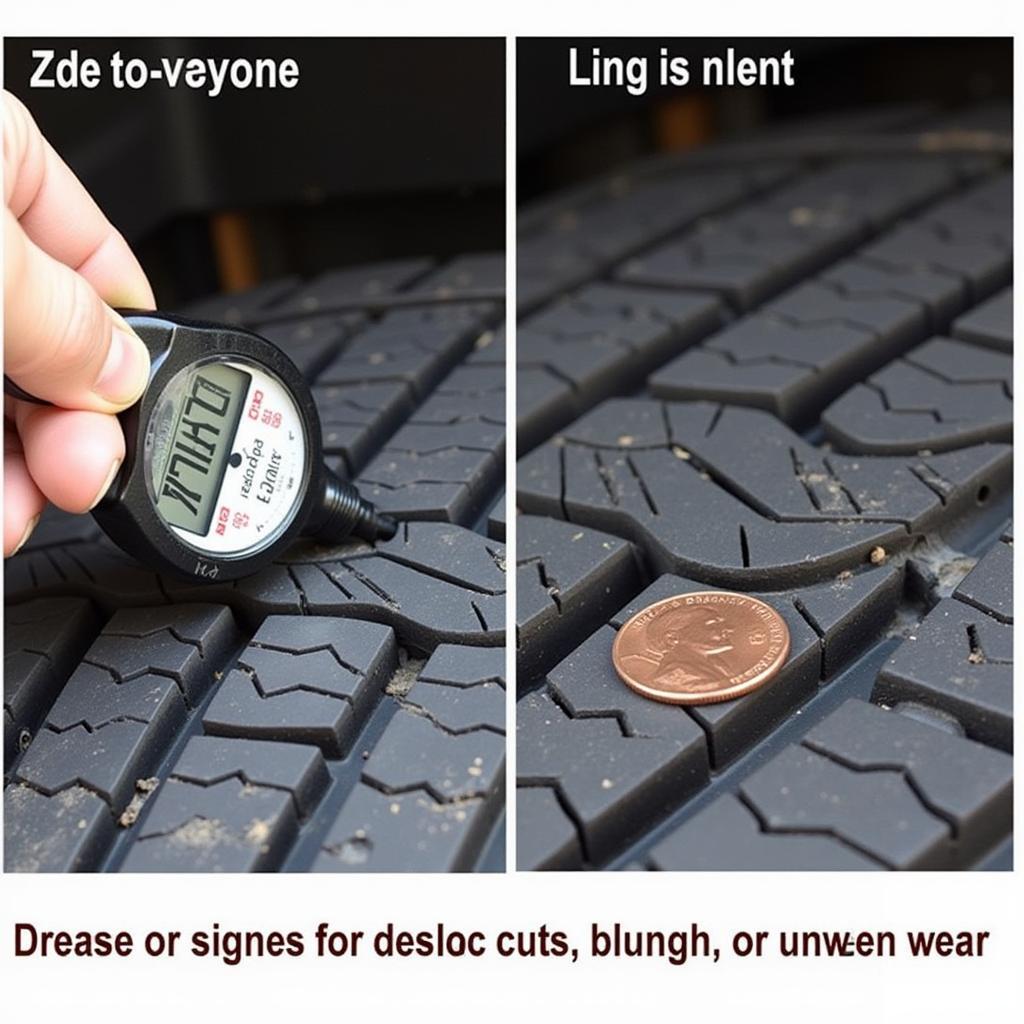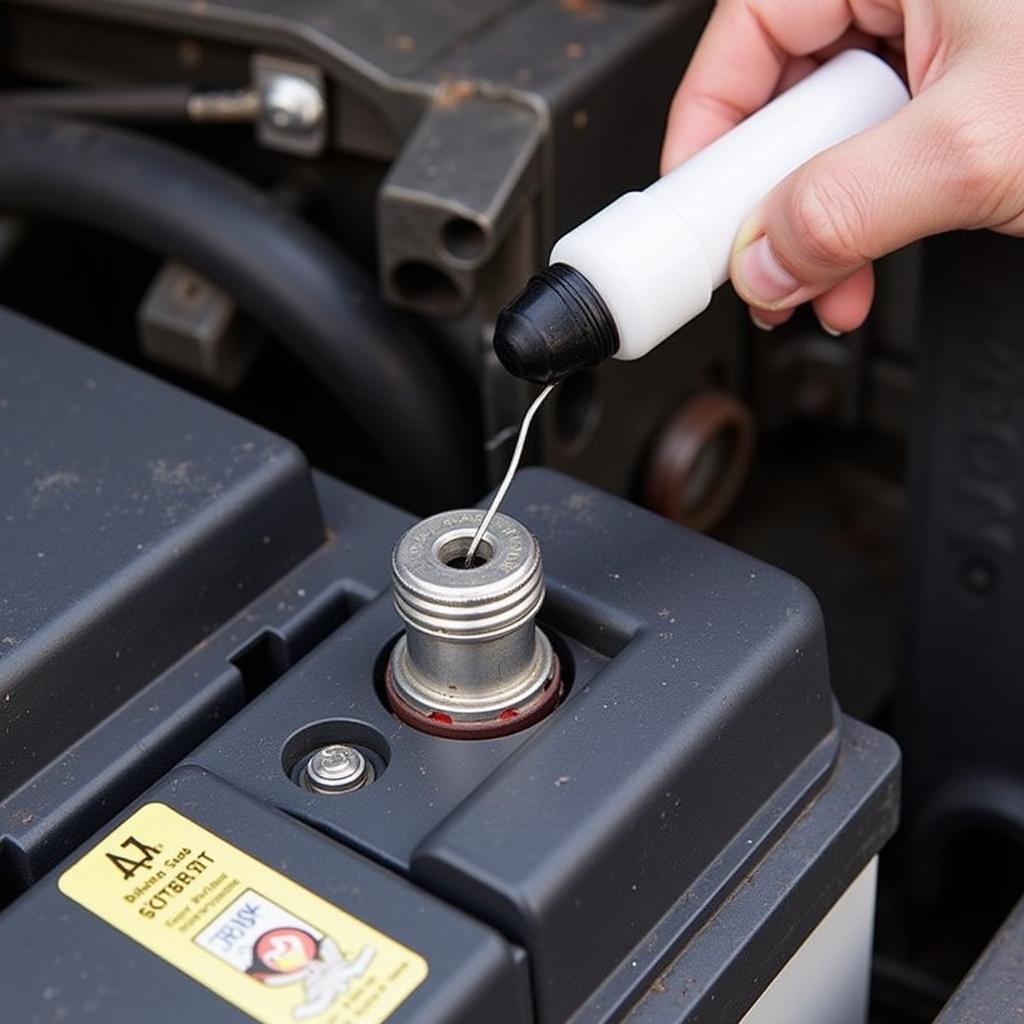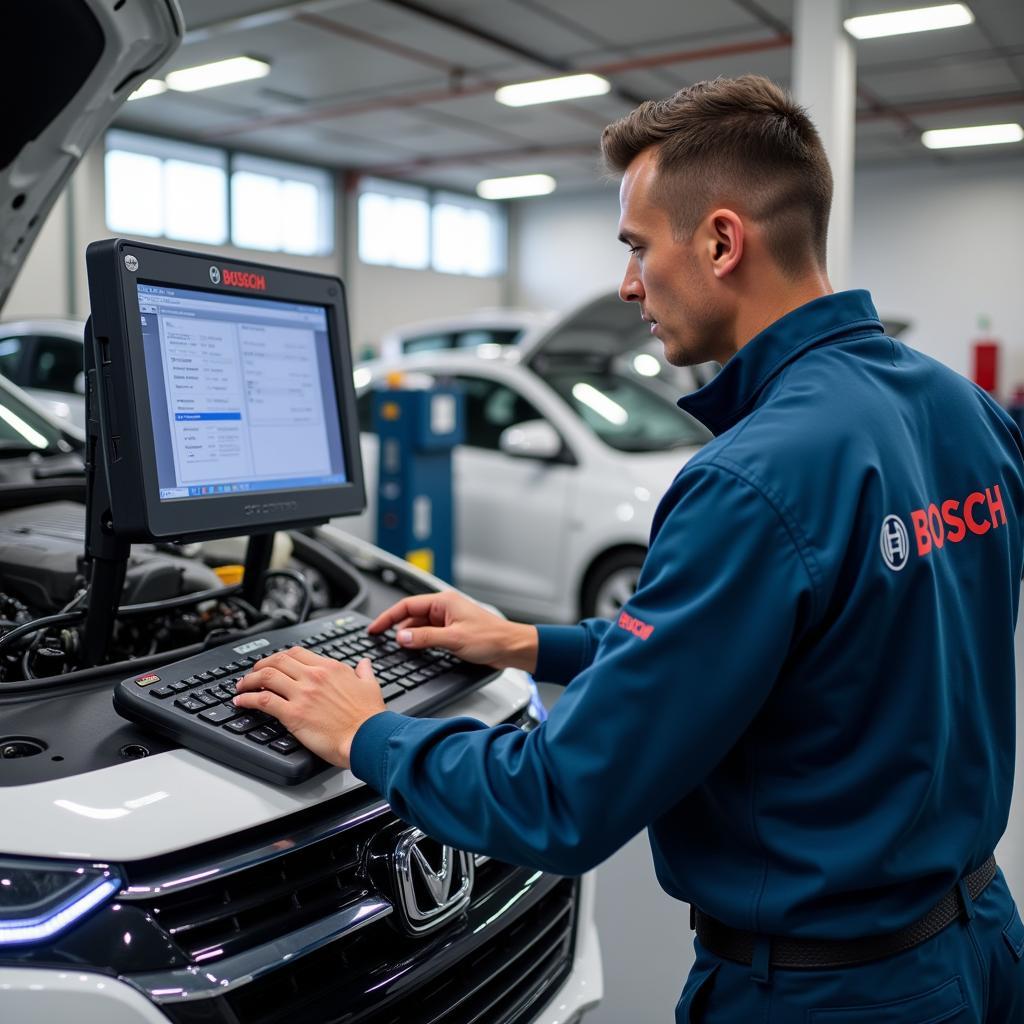Basic Service Checks on Car: A Comprehensive Guide
Performing basic service checks on your car is crucial for ensuring its longevity, reliability, and safety. These checks can often prevent minor issues from escalating into major, costly repairs. Understanding these basic service checks allows you to address potential problems early, saving you time and money in the long run. Let’s delve into the essential checks every car owner should know. If you’re in Bristol, consider a car service centre bristol for professional assistance.
Essential Fluids: The Lifeblood of Your Car
Just like our bodies, cars rely on various fluids to function correctly. Regularly checking these fluids is a fundamental aspect of car maintenance.
Engine Oil
Engine oil lubricates the engine’s moving parts, reducing friction and wear. Check the oil level using the dipstick, ensuring it falls within the designated range. Look for any unusual discoloration or consistency, which could indicate contamination or degradation.
Coolant
Coolant prevents the engine from overheating. Check the coolant level in the reservoir tank when the engine is cold. Top it off if necessary, using the correct coolant type specified in your car’s manual.
Brake Fluid
Brake fluid is vital for the proper functioning of your braking system. Check the fluid level in the master cylinder reservoir. Low brake fluid can be a sign of a leak, requiring immediate attention.
Power Steering Fluid
Power steering fluid assists in effortless steering. Check the fluid level in the power steering reservoir. Low fluid can make steering difficult and may indicate a leak.
Windshield Washer Fluid
Maintaining adequate windshield washer fluid is crucial for clear visibility, especially during inclement weather. Top off the washer fluid reservoir regularly.
Tire Inspection: Ensuring a Smooth and Safe Ride
Tires are your car’s only contact point with the road, making regular inspection crucial for safety and performance.
Tire Pressure
Maintaining correct tire pressure is essential for fuel efficiency, handling, and tire longevity. Check the tire pressure using a gauge, ensuring it matches the recommended pressure listed in your car’s manual or on a sticker inside the driver’s side doorjamb. Don’t forget to check the spare tire as well.
Tire Tread Depth
Adequate tread depth is crucial for grip and traction, especially in wet or icy conditions. Use a penny to check the tread depth. Insert the penny into the tread grooves with Lincoln’s head upside down. If you can see the top of Lincoln’s head, the tread is too worn and the tires need replacing.
Tire Condition
Inspect the tires for any signs of damage, such as cuts, bulges, or uneven wear. Uneven wear can indicate alignment issues.
 Inspecting Car Tires for Pressure, Tread Depth, and Overall Condition
Inspecting Car Tires for Pressure, Tread Depth, and Overall Condition
Lights and Electrical System: Illuminating Your Path
Properly functioning lights are crucial for safety, especially during nighttime driving.
Headlights, Taillights, and Brake Lights
Check all lights, including headlights (high and low beams), taillights, brake lights, and turn signals, to ensure they are working correctly. Have a friend or family member help you check the brake lights.
Turn Signals and Hazard Lights
Verify that the turn signals and hazard lights are functioning properly. Replace any burnt-out bulbs promptly. Need to know about your first service? Check out car first service mileage.
Interior Lights
Check the interior lights, including the dome light, map lights, and dashboard lights.
Other Important Checks
Beyond fluids, tires, and lights, several other checks are essential for maintaining your car’s health.
Battery
Inspect the battery terminals for corrosion. Clean them with a wire brush and baking soda solution if necessary. Consider a professional car aircon service medway for optimal cooling system performance.
 Checking Car Battery Terminals for Corrosion and Cleanliness
Checking Car Battery Terminals for Corrosion and Cleanliness
Belts and Hoses
Check the belts and hoses for cracks, fraying, or leaks. Replace any worn or damaged components promptly. Looking for service history? See if you can i get car service history online.
Air Filter
A clean air filter ensures optimal engine performance and fuel efficiency. Check the air filter and replace it if it’s dirty or clogged. If you need car service in Dorset Street, consider checking out car service dorset street.
Wiper Blades
Ensure the wiper blades are in good condition and effectively clear the windshield. Replace worn-out blades to maintain visibility.
Conclusion
Performing these basic service checks on your car regularly can significantly contribute to its longevity, reliability, and safety. By being proactive and addressing potential issues early, you can save yourself time, money, and potential headaches down the road. Remember, regular maintenance is an investment in your car’s well-being. Performing these basic service checks ensures your vehicle runs smoothly and safely.
FAQ
- How often should I check my car’s fluids?
- What should I do if I find a leak?
- How often should I check my tire pressure?
- When should I replace my tires?
- How can I tell if my battery is going bad?
- How often should I change my air filter?
- What are the signs of worn-out wiper blades?
Need assistance? Contact us via WhatsApp: +1(641)206-8880, Email: [email protected] or visit us at 456 Oak Avenue, Miami, FL 33101, USA. We have a 24/7 customer service team.

